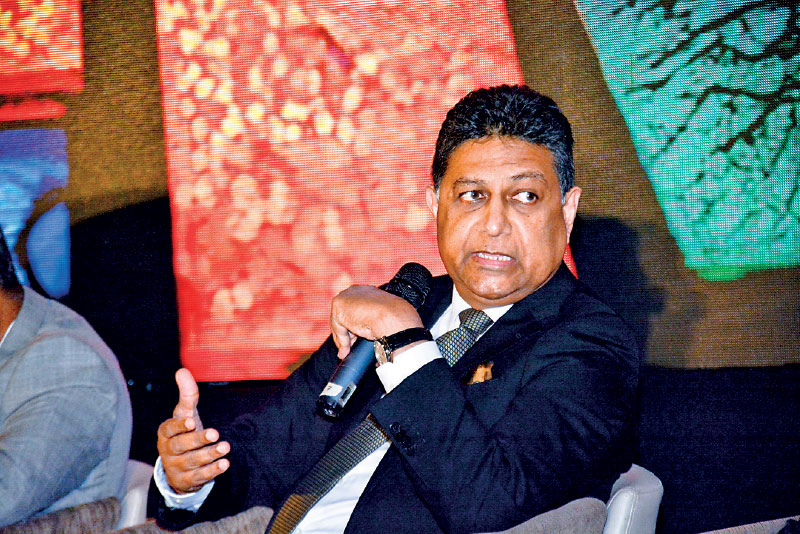Tuesday Feb 24, 2026
Tuesday Feb 24, 2026
Monday, 10 November 2025 04:18 - - {{hitsCtrl.values.hits}}

Colombo Port City Economic Commission Chairman Harsha Amarasekera - Pic by Upul Abayasekara
By Charumini de Silva
Colombo Port City Economic Commission Chairman Harsha Amarasekera, PC said the project has the potential to become the “single catalyst of growth” for Sri Lanka, positioning the island as the “Switzerland of the region” for trade, investment and services, backed by an attractive incentive regime and renewed policy stability.
Speaking at the EY Sri Lanka post-Budget panel discussion on Friday, he said the Port City, as the country’s first and only service-oriented Special Economic Zone (SEZ), can connect Sri Lanka to high-value global sectors such as fund management, fintech, arbitration and e-commerce.
He noted that while establishing an independent arbitration hub from scratch could be difficult in the presence of established centers like Singapore or Kuala Lumpur, Sri Lanka could attract regional arbitration cases by positioning itself as a cost-effective alternative. “Singapore as an arbitration centre is expensive. Sri Lanka can become a cheaper destination for disputes involving India, Bangladesh and Pakistan. We could even explore the possibility of hosting a branch of the Singapore International Arbitration Centre within the Port City,” he suggested.
Amarasekera described Sri Lanka’s geographical advantage as pivotal to its role in South Asia’s trade and investment flows. “In this region, we are the Switzerland of the world. Many Bangladeshi and Pakistani companies don’t want to operate through India and vice versa. So Sri Lanka can become the neutral hub for trade, meetings, and investment across the region,” he said, adding that the Port City’s convention facilities and business infrastructure could facilitate such activities.
Reflecting on the broader economic framework, he dismissed misconceptions that the Port City’s incentive scheme had been altered, explaining that the original benefits were time-bound designed to kickstart the development and was later disrupted by the pandemic and foreign exchange crisis. “The new rules-based governance structure and incentive framework, developed with the Finance Ministry, remain very competitive compared to those in Dubai, Singapore or India’s Gift City,” he noted.
Amarasekera asserted that the focus should now be on simplifying operational entry rather than expanding fiscal incentives. “We must make it easier for investors to come in and start operations. That means streamlining residency and long-term visas, employment conditions for expatriates and resolving issues such as EPF/ETF compliance for short-term foreign staff,” he said.
He also pointed to the need for regulatory clarity on global income declarations and for accelerating intellectual property registrations, which can take up to seven to eight years. “Investors need assurance of policy consistency and efficient execution. That’s what gives confidence,” he stressed.
Regarding the legislative amendments expected under the 2026 Budget, Amarasekera said the Commission aims to implement practical changes swiftly rather than wait for ‘a perfect law’.
“We want to get the key amendments through quickly to approve the pending applications and then continue improving the framework in collaboration with the Finance Ministry,” he explained.
Amarasekera opined that with the right mix of regulatory reforms, policy consistency, and execution efficiency, the Colombo Port City could become the “single most important catalyst” driving Sri Lanka’s economic transformation in the coming decade.